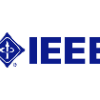Artificial intelligence (AI) is rapidly transforming power electronics, with AI-related publications in IEEE Power Electronics Society selected journals increasing more than fourfold from 2020 to 2025. However, the ethical dimensions of this transformation have received limited attention. This article underscores the urgent need for an ethical framework to guide responsible AI integration in power electronics, not only to prevent AI-related incidents but also to comply with legal and regulatory responsibilities. In this context, this article identifies four core pillars of AI ethics in power electronics: Security & Safety, Explainability & Transparency, Energy Sustainability, and Evolving Roles of Engineers. Each pillar is supported by practical and actionable insights to ensure that ethical principles are embedded in algorithm design, system deployment, and workforce development. The authors advocate for power electronics engineers to lead the ethical discourse, given their deep technical understanding of both AI systems and power conversion technologies. The paper concludes by calling on the IEEE Power Electronics Society to spearhead the establishment of ethical standards and best practices that ensure AI innovations are not only technically advanced but also trustworthy, safe, and sustainable.
翻译:暂无翻译




